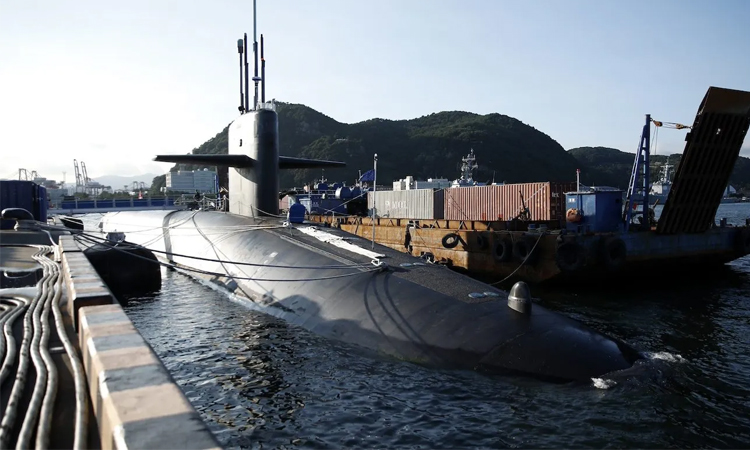News Flash

SEOUL, Nov 6, 2025 (BSS/AFP) - South Korea's defence minister thinks building a nuclear-powered submarine at home would be "reasonable", the department told AFP Thursday, a week after US President Donald Trump said it would be made in the United States.
Trump had announced that South Korea would build the submarine in a Philadelphia shipyard "right here in the good ol' U.S.A.", where the nuclear technology is among the most sensitive and tightly guarded military secrets.
It comes after Seoul announced the two countries had reached a broad deal covering investment and shipbuilding following Trump's meeting with South Korean President Lee Jae Myung.
Critics argue that, given Trump's remarks, Washington may push Seoul to invest in the Philadelphia shipyard in exchange for US support to build the vessel.
But South Korea's Defence Minister Ahn Gyu-back said Wednesday it was sensible to build the submarine domestically at home, his ministry said.
When asked by lawmakers at the National Assembly whether he believed it should be built domestically, Ahn replied: "We believe it is reasonable, given that we have accumulated more than 30 years of technology and research."
Unlike diesel-powered submarines, which must regularly surface to recharge their batteries, nuclear-powered ones can remain submerged for far longer.
Senior defence ministry official Won Chong-dae said this week it was "feasible to construct a nuclear-powered submarine with our own technology".
Seoul expects to launch the lead vessel by the mid to late 2030s, if Seoul secures "the submarine fuel through consultations with the United States" and begins construction by the late 2020s, he added.
His comments followed remarks by a presidential aide who said Seoul had sought and received Washington's "authorisation for the raw materials," without mentioning US submarine technology.
The Philadelphia shipyard has been run by South Korea's Hanwha Ocean since last year, but minister Ahn said Wednesday the yard is judged to be "currently lacking sufficient technology, workforce, and facilities".
President Lee said this week that once South Korea's own military capabilities grow, "America's defence burden in the Indo-Pacific will also be reduced".